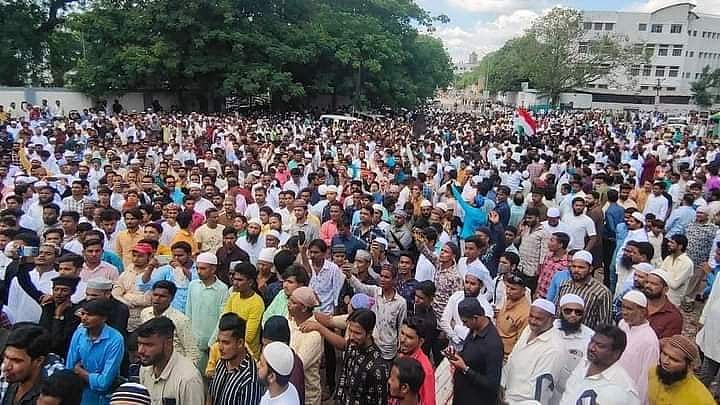The additional burden on buyers by way of equal monthly instalments (EMI) for home purchases is all set to increase after the Reserve Bank of India’s Monetary Policy Committee (MPC) hiked the repo rate by 50 basis points to 4.9 per cent at a recent meeting. Hit by Covid-induced inflationary side-effects, home buyers vented frustration to the Free Press Journal.
Ketan Sawant, who bought a flat in Mumbai two years ago, will now have to shell out Rs 4,000 more as EMI to pay his home loan. He said, “I received an intimation from my bank informing me about the revised EMI from the new cycle. The bank has increased interest from 0.75 per cent to 1 per cent. It is unfair that the RBI has put the burden on people like us. Even a small increase disturbs the budget of salaried people.”
Pankaj Pandey, another homebuyer, told FPJ that he is the only earning member in his family and somehow he had managed to buy a house in the Mumbai Metropolitan Region. However, with the hiked EMI, his financial difficulty will increase, too. He said, “Due to my ongoing EMI, I have cut down my expenses drastically. Now, with Rs 5,000 more as EMI, school and tuition fees, and other expenses, will become difficult.”
Stakeholders in the real estate industry also feel that this will have an impact on the home buying activity. They have, therefore, sought government intervention through provision of concessions in taxes, stamp duty fees, premium payments, among others.
Pritam Chivukula, the treasurer for Maharashtra Chamber of Housing Industry and the Confederation of Real Estate Developers’ Associations of India (MCHI-CREDAI) said that after two years of unchanged repo rate, the RBI’s decision was a no-brainer. The sharp acceleration of rates consecutively for the second time in a short period will have a short-term effect on the home-buying sentiment, he said.
Similarly, Manju Yagnik, senior vice-president of NAREDCO, said that considering the projected inflation, this would certainly affect the housing prices and the overall affordability parameters. “While there has been a radical change in the buyers’ expectations and attitude towards homeownership, it will largely withstand marginal fluctuations in the lending rates,” she said.
Advocate Godfrey Pimenta, practicing MahaRERA cases, believes this will severely affect the homebuyers. He said, “Several home buyers have issues such as builders not giving timely possession of flats, missing the project deadline, following which they stay in rented houses. The EMI and rent payments have overburdened them, and now the hike in EMI is another thing to worry about.”
Meanwhile, Nish Bhatt, the founder and CEO of an investment consulting firm said the quantum of hike in repo rate is on the upper end of the market expectation. “The hike in the limit for loans for state and rural co-operative banks for residential and commercial real estate will be yet another step to boost funding avenues for the real estate sector. It will ensure liquidity and funding for the sector, thereby boosting demand in the rural pockets of the country,” said Bhatt.
Here's what stakeholders say
Interest rates have been the biggest factor in the resurgence of real estate demand in the last two years. We hope that the state government will step in to lighten the homebuyer’s load by reducing stamp duty and premium.
Pritam Chivukula, treasurer, MCHI-CREDAI
If this trend continues, we could witness home loan interest rates touching the 8% mark by the end of the financial year. The previous quarter witnessed a historic spike in property registrations, which was the highest in the last decade.
Manju Yagnik, senior vice-president, Naredco
Several home buyers have issues such as builder not giving timely possession of flat, missing the project deadline, following which they stay in rented houses. The EMI and rent payments have overburdened them, and now the hike in EMI is another thing to worry.
Godfrey Pimenta, Advocate







